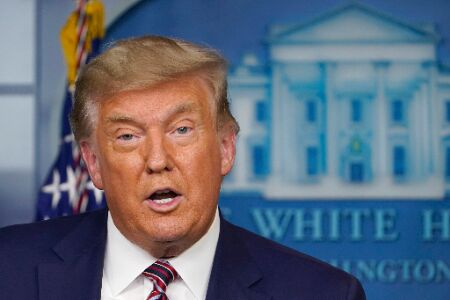Hitting reset?

When Donald Trump had first taken the office of US President in 2016, one of his most significant foreign policy moves was to affect a major change in US-Saudi relations. Under his predecessor, Barack Obama, relations were considerably strained. Three major factors were driving this wedge — the Iran nuclear deal which Saudi Arabia vehemently opposed; Saudi Arabia's patchy human rights record and, Saudi involvement in the brutal Yemen civil war. When Trump reset relations with Saudi Arabia, he effectively reversed US policy on all of these three factors. He pulled out of the Iran nuclear deal; he reversed Obama policy on minimal involvement in Yemen and decided to forgo calling out Saudi Arabia on its human rights infractions in the hopes of securing better economic ties.
De-facto Saudi leader Crown Prince Mohammed bin Salman (MBS) gained a direct line to the White House through his 'close friendship' with presidential son-in-law, Jared Kushner. MBS had only recently reached the peak of his personal power in Saudi Arabia and was able to benefit greatly from his new found 'friendship'. Aside from weapon sales and logistical support for the Yemen conflict, MBS also benefitted from this relationship in the Jamal Khashoggi murder case. Even though his own intelligence agencies were asserting with increased confidence that Crown Prince MBS was involved in the plan to murder Khashoggi — a notable MBS critic — Trump elected to give the prince a free pass while emphasising the economic benefits of being allied with MBS.
Fast-forward to 2021 and the US-Saudi relation appears to once again be changing. Not only does Biden fully support the revival of the Iran nuclear deal but has also signalled an end for all US support to the conflict in Yemen. Furthermore, Biden has also decided to distance himself from MBS by electing to address his father, the King as an equivalent head of state. This means that, at least for now, MBS does not have a direct line to the White House as he had before. What's more, Biden has now decided to reopen the full inquiry into the murder of journalist Jamal Khashoggi. Biden has apparently made the decision of declassifying a potentially damning report on the murder case last month which is likely to formally assign blame to MBS. Axios has reported that Biden plans to call Saudi King Salman before the release in their first formal conversation.
The release of this report may put an unusual strain on the US-Saudi relationship. While the intelligence report may implicate Crown Prince MBS, it is unlikely to have the effect of pushing MBS away from the power centre in Riyadh. Commentators say that MBS is already too entrenched in power to really be pushed out even if the US wishes to do so. Regional commentators say that this action could possibly push Saudi Arabia and its allies away from America and into the waiting arms of Russia and China.
MBS, for what it's worth, has tried to make an early peace offering in the form of releasing imprisoned Saudi women's activist Louijain al-Hathloul earlier not too long ago. But this will not be enough of a concession to change Biden's overall policy shift. It may well be that Biden is simply seeking to take appropriate distance and establish America's credibility as a neutral authority in the region that can play peacemaker. But this could come with some initial cost to the relationship as Saudi Arabia must decide what it is willing to give up to maintain a good relationship with America. The situation is especially tenuous as America is seeking to also lower the temperature in its relationship with Iran, a factor that will likely become a great source of tension in US-Saudi relations. At the very least, Biden's stance denotes that while the US still wishes to retain Saudi Arabia as an important partner in the region, it is no longer willing to indulge the misadventures of MBS.



